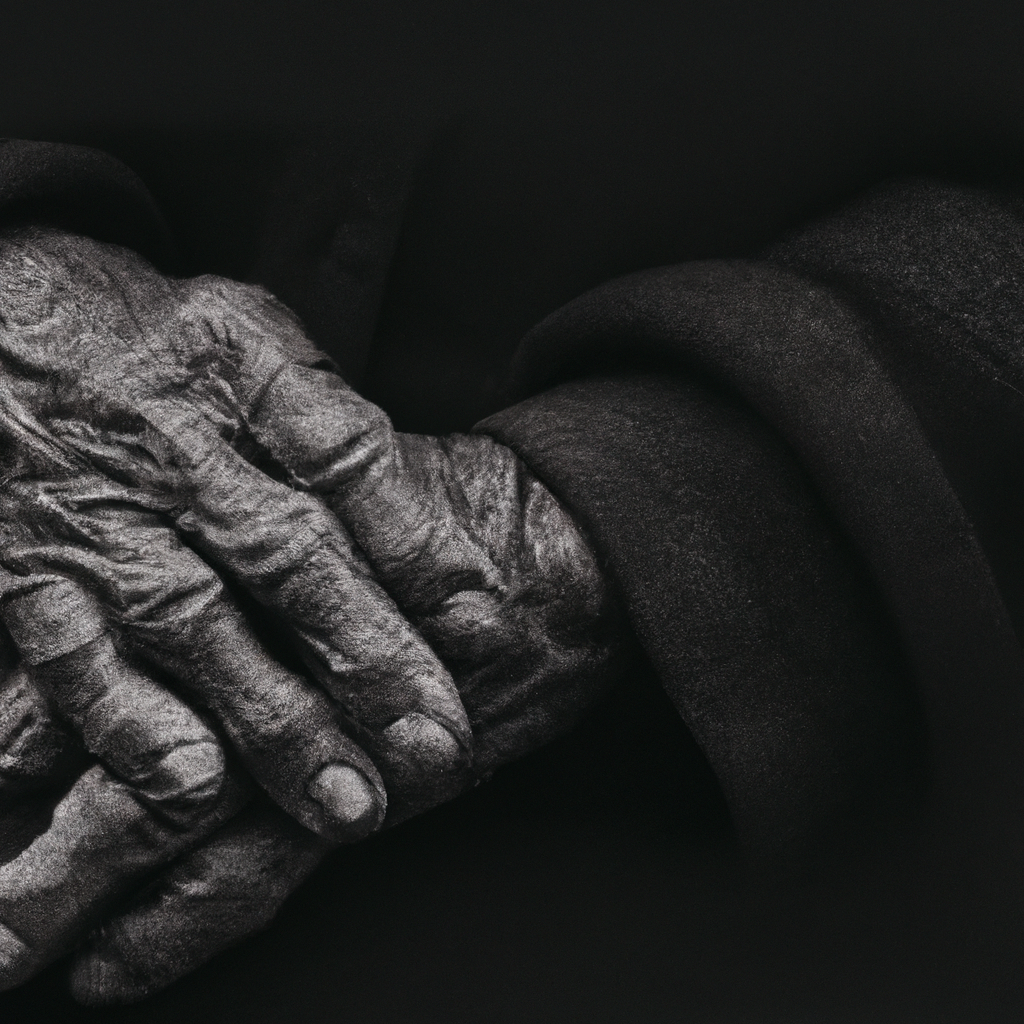Blog
The Struggles of Growing Old Alone without Family
Struggles of growing old alone without family. Explore the challenges faced by elderly individuals – loneliness, limited social interactions, lack of caregivers, health complications, financial difficulties. Discover coping strategies and alternative support systems to navigate this journey.
Imagine a life where you navigate the ups and downs of the aging process while growing old alone without family by your side. As the years pass by, you find yourself facing the struggles of growing old alone, without the support and companionship that family provides. From the challenges of maintaining physical and mental well-being to the profound loneliness that often accompanies this journey, this article delves into the difficult realities faced by those who find themselves growing old without family. Despite the hardships, it also explores the strength and resilience that can be found within oneself to navigate this path with determination and grace.

Growing Old Alone Without Family: The Importance of Family Support
Emotional Support
Family support plays a crucial role in providing emotional support to individuals, especially as they grow older. Having family members who are there for you during challenging times can help alleviate feelings of loneliness and provide a sense of belonging. Whether it’s a shoulder to cry on, someone to listen when you need to vent, or simply having loved ones to share life’s joys and sorrows with, emotional support from family can make a world of difference in maintaining mental well-being.
Physical Support
As we age, our bodies may not be as robust as they once were. Family support becomes essential in providing physical assistance when needed. From helping with household chores to accompanying you to medical appointments, family members can lend a helping hand and ensure your well-being. Their presence and assistance can make it easier to navigate daily tasks and ensure a higher quality of life.
Financial Support
Financial stability is a concern for everyone, especially in older age. Family support can provide a safety net during financial difficulties, giving you peace of mind and the ability to meet your basic needs. Whether it’s helping with bills, managing investments, or offering guidance on financial decisions, family support can alleviate financial stress and provide a sense of security for the future.
Challenges Faced by Elderly Individuals Without Family
Increased Feelings of Loneliness
One of the greatest challenges faced by elderly individuals without family is the heightened sense of loneliness they may experience. Without the presence of loved ones, the feeling of being alone in the world can be overwhelming. Loneliness can have a profound negative impact on mental health, leading to feelings of sadness, depression, and a sense of abandonment.
Limited Social Interactions
Without family, the social interactions that many of us take for granted become limited for elderly individuals. The lack of close connections can result in a smaller social circle and diminished opportunities for companionship. Daily interactions with loved ones are often replaced with solitude, further exacerbating feelings of isolation and loneliness.
Lack of Caregivers
Without family support, elderly individuals may face challenges in finding suitable caregivers to assist with their daily needs. From managing their health to carrying out household tasks, having a caregiver becomes essential, especially when physical limitations arise. The absence of family members to fulfill this role can create a significant hurdle in finding reliable and trustworthy care.
Health Complications
Growing old comes with its fair share of health complications, and without a support system in place, managing these issues can become even more challenging. Elderly individuals without family may find themselves relying solely on their own abilities to navigate healthcare systems, medication management, and various health-related decisions. This self-reliance can escalate the risk of underlying health conditions going unnoticed or untreated, increasing vulnerability to health risks.
Financial Difficulties
Without the support of family, elderly individuals may face financial struggles and uncertainties. Retirement savings may be insufficient, and managing daily expenses can become overwhelming. The worry about future financial stability can add a significant burden to one’s already challenging situation. The absence of family resources, both emotional and financial, can amplify these difficulties.
Loneliness and Isolation
Effects on Mental Health
The emotional toll of growing old alone without family can have severe effects on mental health. The profound sense of loneliness and isolation can lead to increased feelings of sadness, anxiety, and hopelessness. Studies have shown that prolonged loneliness can even increase the risk of cognitive decline and dementia. It is crucial to address these mental health concerns and find ways to combat the negative effects of isolation.
Increased Risk of Depression
Elderly individuals without family support face a higher risk of depression. The absence of regular social interactions and emotional connections, combined with the challenges of aging, can contribute to a deep sense of sadness and despair. Depression can have detrimental effects on physical health as well, further complicating an already challenging situation.
Feelings of Abandonment
Growing old alone without family can lead to a pervasive feeling of abandonment. When there is no one to turn to, to rely on, or to share life’s joys and difficulties, it is easy to feel forgotten and invisible. The emotional toll of feeling abandoned can be overwhelming and can contribute to a profound sense of loss and despair.
Adapting to Limited Social Interactions
Loss of Social Connections
When family members are not present, a significant loss of social connections occurs. Friends and acquaintances may also present limited opportunities for companionship. Without the ability to engage in regular social interactions, elderly individuals can feel isolated and disconnected from the world around them.
Difficulty in Making New Friends
Building new relationships becomes more challenging as we age, particularly without the support and encouragement of family members. Elders may struggle to meet new people, make friends, and cultivate meaningful connections. The absence of family support can make this process even more daunting.
Reduced Opportunities for Social Activities
Family support often involves engaging in social activities together, creating shared experiences and memories. Without family, opportunities for social activities can become scarce, leading to a more monotonous and isolated lifestyle. Elderly individuals may miss out on various events and gatherings, further contributing to a sense of loneliness and isolation.

Coping with Health Complications
Self-Reliance in Managing Health Issues
Without family support, elderly individuals must rely solely on themselves to manage their health issues. This can be a daunting task, especially when dealing with complex medical conditions or medication management. The absence of a support system to coordinate healthcare, provide transportation to appointments, or navigate insurance processes can result in increased stress and difficulties in accessing adequate medical care.
Difficulty Accessing Medical Care
Lack of family support can hinder access to medical care, especially for individuals with limited mobility. Transportation to healthcare facilities may be a challenge, and coordinating appointments and necessary follow-ups can become overwhelming. Without the assistance of family members, access to timely and appropriate medical care may be compromised.
Increased Vulnerability to Health Risks
The absence of family support puts elderly individuals at a higher vulnerability to health risks. There may not be anyone to notice subtle changes in health conditions, resulting in delayed intervention and potential complications. Additionally, without a support system to provide emotional and physical care, elderly individuals may find it difficult to adhere to necessary treatments or make healthy lifestyle choices.
Financial Struggles and Uncertainty
Lack of Financial Support
Family support often includes financial assistance, particularly during times of need. Without family, elderly individuals may find themselves lacking the necessary financial resources to meet their basic needs. Retirement savings may be insufficient, and unexpected expenses can pose significant challenges without a support system to rely on.
Difficulty in Managing Expenses
Financial management can become more arduous without family support. Budgeting, paying bills, and making financial decisions may be overwhelming tasks for an elderly individual who is navigating these responsibilities alone. The absence of family guidance and assistance can lead to increased stress and uncertainty.
Uncertain Future
The lack of family support can contribute to an uncertain future for elderly individuals. Without a safety net, concerns about long-term care, housing arrangements, and overall financial stability may loom large. The absence of family resources and guidance can make planning for the future feel overwhelming and daunting.

Finding Alternative Support Systems
Community Organizations
In the absence of family support, community organizations can provide a vital lifeline for elderly individuals. These organizations often offer a range of support services, including social activities, companionship programs, and access to resources that cater specifically to the needs of seniors. Engaging with community organizations can help combat loneliness, provide a sense of belonging, and ensure access to essential services.
Senior Centers
Senior centers serve as valuable resources for elderly individuals without family support. These centers offer a variety of programs and activities designed to promote social engagement, physical wellness, and mental stimulation. From exercise classes to educational workshops and social gatherings, senior centers provide opportunities for connections and meaningful interactions, fostering a sense of community.
Professional Caregivers
In the absence of family caregivers, professional caregivers can step in to provide the assistance and support elderly individuals need. These trained professionals can help with daily tasks, personal care, medication management, and even emotional companionship. Hiring a professional caregiver can ensure that necessary care is provided, even in the absence of family support.
Support Groups
Joining support groups specifically tailored for the elderly can offer a tremendous source of support and understanding. These groups provide a safe space to share experiences, challenges, and triumphs with others who are going through similar situations. Through support groups, individuals can find empathy, advice, and companionship that may be lacking in their everyday lives.
Utilizing Technology for Connection
Social Media Platforms
Social media platforms can be a fantastic tool for staying connected with others, even when family support is absent. Platforms such as Facebook, Instagram, and Twitter offer opportunities to engage with friends, join online communities, and share experiences. Through social media, elderly individuals can maintain connections, participate in discussions, and engage in virtual activities, mitigating feelings of isolation.
Video Calling Applications
Video calling applications like Skype, FaceTime, or Zoom can bring loved ones closer, no matter the distance. These applications enable face-to-face communication, allowing for real-time conversations and the opportunity to see and be seen. Utilizing video calling can help bridge the gap between elderly individuals and their family members, providing a sense of connection and reducing feelings of loneliness.
Online Communities
Online communities focused on particular hobbies, interests, or support groups can foster connections and provide an avenue for interaction. Whether it’s joining a virtual book club, participating in a discussion forum, or engaging in a shared interest group, online communities can offer social connections and a sense of belonging. These platforms allow individuals to meet like-minded people and cultivate meaningful relationships, even in the absence of family support.

Seeking Government Assistance and Services
Social Security Benefits
For elderly individuals without family support, understanding and accessing social security benefits becomes essential. These benefits can provide a crucial financial safety net and help cover basic living expenses. Seeking guidance from government agencies and social security administrators can ensure that individuals receive the assistance they are entitled to, offering much-needed support and stability.
Medicaid and Medicare
Navigating the complexities of healthcare coverage can be challenging without the assistance of family members. Enrollment in Medicaid and Medicare programs can provide access to affordable healthcare services and valuable resources. Understanding the eligibility criteria and seeking guidance from professionals can help elderly individuals without family support access the healthcare coverage they need.
Senior Programs
Government-sponsored senior programs often offer a range of resources and support services tailored to the needs of the elderly. From meal delivery services to transportation assistance and home modifications, senior programs can provide practical assistance and support, enhancing the quality of life for those without family support. Researching available programs in your area and reaching out to local agencies can help identify valuable resources.
Embracing a Positive Mindset
Focusing on Personal Growth
Embracing a positive mindset can make a significant difference in the lives of elderly individuals without family support. Shifting the focus towards personal growth and self-improvement can provide a sense of purpose and fulfillment. Engaging in learning new skills, taking up hobbies, or pursuing lifelong passions can foster a sense of accomplishment and enrich daily life.
Engaging in Hobbies and Interests
Hobbies and interests offer an opportunity for joy, stimulation, and connection with like-minded individuals. Exploring new hobbies or deepening existing interests can provide a sense of fulfillment and alleviate feelings of loneliness. Joining hobby-focused groups, classes, or clubs can help foster new connections and create a sense of belonging.
Appreciating Solitude and Independence
Rather than dwelling on the absence of family support, embracing the solitude and independence that comes with growing old alone can lead to a sense of empowerment. Appreciating the freedom to dictate one’s daily schedule, make independent decisions, and enjoy personal interests allows for the cultivation of self-reliance and self-reliance can foster a sense of pride and accomplishment.
Family support is crucial for the emotional, physical, and financial well-being of elderly individuals. Without it, they face challenges like loneliness, limited social interactions, and difficulty managing health and finances. However, community organizations, senior centers, caregivers, support groups, and technology can provide valuable assistance. Government assistance and services such as social security benefits, Medicaid, and Medicare offer financial support and healthcare access. Maintaining a positive mindset, pursuing personal growth, engaging in hobbies, and appreciating solitude and independence contribute to a fulfilling life for elderly individuals without family support.




